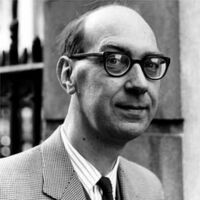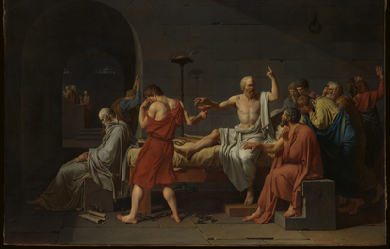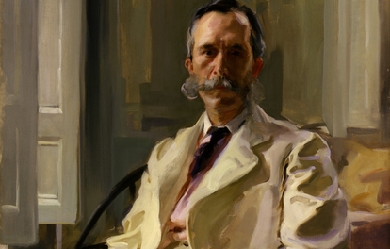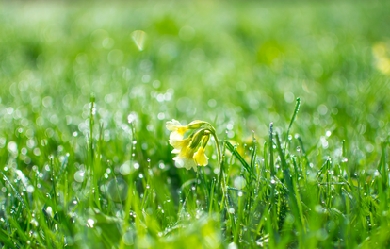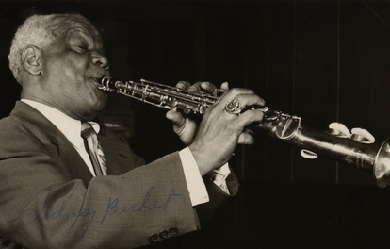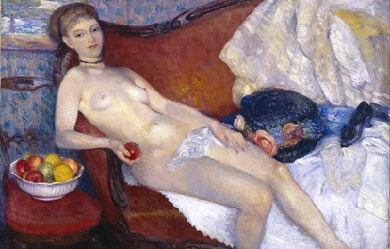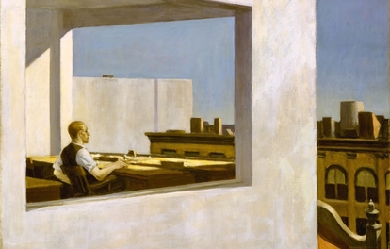
Water
To construct a religion
I should make use of water. Going to church
Would entail a fording
To dry, different clothes; My liturgy would employ
Images of sousing,
A furious devout drench, And I should raise in the east
A glass of water
Where any-angled light
Would congregate endlessly.
Though the collection is entitled The Whitsun Weddings, there are very few poems directly connected to religion: even the title poem has only a side mention, “That Whitsun, I was late getting away” – clearly not celebrating the day. As Larkin was a strong atheist, this isn’t a surprise. ‘Water’ is a poem about religion, however.
In the first stanza, we are told a matter-of-fact declarative. “To construct a religion” is perhaps ironic, however, as it suggests that all religions are constructed and so false. “To dry, different clothes” is perhaps the most obvious criticism of religion – the “dry, different clothes” seem to suggest that the clothes donned for going to church, “Sunday best” are somehow artificial and unwelcome – and “different” perhaps reminds us of the punning of ‘An Arundel Tomb’, the “endless altered people come”.
As the stanzas progress, the persona describes a number of different uses for the water. “Going to church / Would entail a fording” for example, is like baptism, being washed clean, born again. The poem seems to be mostly directed towards the Christian way of teaching, in which “water” has a highly significant role: Jesus walked on water, water is used at baptisms, the washing of the feet are just a few examples. “Liturgy”, for example, in the third stanza, refers to the Christian act of taking communion.
Perhaps, in taking a symbol commonly used in Christian belief, Larkin criticises the doctrines? Or perhaps it shows how one religion “borrows” from another, and how ultimately they are all the same.
The images of water grow more intense as the poem moves forwards. From the “fording” of the second stanza, we are presented with “sousing” – to drench – and “furious devout drench”. Still, even here there is perhaps irony, for “sousing” in slang terms can also mean ‘drunken’.
In the final stanza, the intensity is lost, in the still “glass of water”. It is raised to the “east”, which is another important part of Christianity. Churches are traditionally built in cross shapes, with the altar on the eastern side – facing towards Jerusalem. “East”, and the rising sun, are also symbols for beginnings and awakenings.
A beautiful image concludes the poem:
Would congregate endlessly.
It seems that the water somehow is all-encompassing “any-angled light”, yet focusing “congregate endlessly”. “Congregate” reminds us of the congregation in a church, literally those that come together. But the fact that the poem never refers to god or any religious value perhaps takes it beyond simple “religion”. All the religions, in the slight ambiguity and irony, seem to be lacking, and the simplicity of water perhaps suggests that they overcomplicate.
The poem also, perhaps, symbolises Larkin’s own writing, the reaching out to the reader, the focus of the words, the understanding and the emotions. In writing like the “enormous yes” there should be a sense of “any angled light” awakening for the reader, which “would congregate endlessly.”


